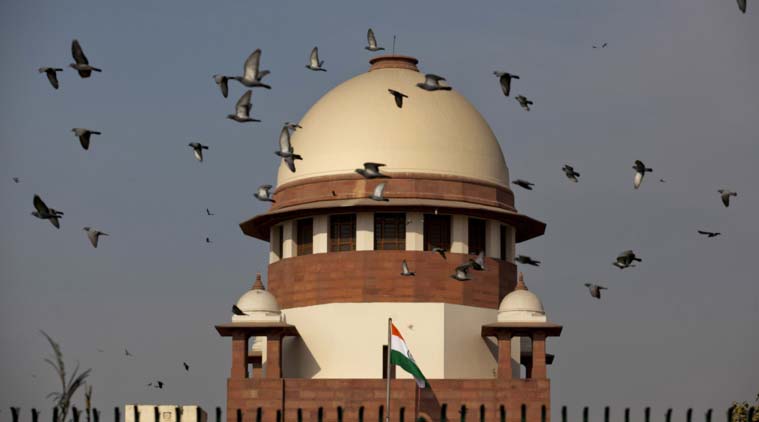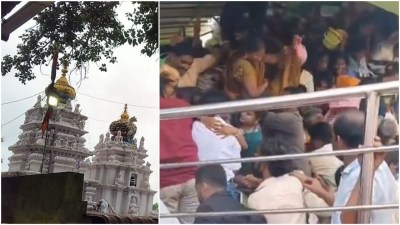Stay updated with the latest - Click here to follow us on Instagram
State not bound to grant quota in promotion: Supreme Court
The Supreme Court Friday ruled that the State is not bound to grant reservation in promotion to Scheduled Castes and Scheduled Tribes (SC/ST) employees.
 The Supreme Court of India.
The Supreme Court of India.
The Supreme Court Friday ruled that the State is not bound to grant reservation in promotion to Scheduled Castes and Scheduled Tribes (SC/ST) employees.
“…The regard being had to the enabling provisions of Articles 16(4-A) and (4-B), the State is not bound to make reservation. It has a discretion to do so and the State’s discretion can only be exercised on certain conditions being satisfied,” said a Bench of Justices Dipak Misra and Prafulla C Pant.
Articles 16(4-A) and (4-B) empowers the government to make provisions for reservation in matters of promotion to any class or classes of posts in the favour of SC/ST employees which, in the opinion of the State, are not adequately represented in the services under the State.
[related-post]
The Bench said this was a discretionary power vested with the State and that the courts cannot issue directions to the government to collect data regarding any group’s alleged under-representation in various services.
Relying upon a body of precedents on the issue, the court said that the State is not bound to grant reservation in promotion and, thus, there is no constitutional obligation. It said that directing the government to compile qualitative data of SC/ST employees for granting reservation in promotion would tantamount to entering into legislative domain.
“It has been postulated that the State is not bound to make reservation for SC/STs in matter of promotions. Therefore, there is no duty. In such a situation, to issue a mandamus to collect the data would tantamount to asking the authorities whether there is ample data to frame a rule or regulation. This will be, in a way, entering into the domain of legislation, for it is a step towards commanding to frame a legislation or a delegated legislation for reservation,” the Bench held.
It also underscored that the courts do not formulate any policy and it would always remain away from issuing directions that may amount to legislation, rules and regulation or policy relating to reservation. “The courts can test the validity of the same (a policy or a law) when they are challenged. The court cannot direct for making legislation or for that matter any kind of subordinate legislation,” it emphasised.
The order came on a petition that had sought a direction to Uttar Pradesh government to conduct a survey to collect necessary qualitative data regarding representation of SCs and STs in state services.







